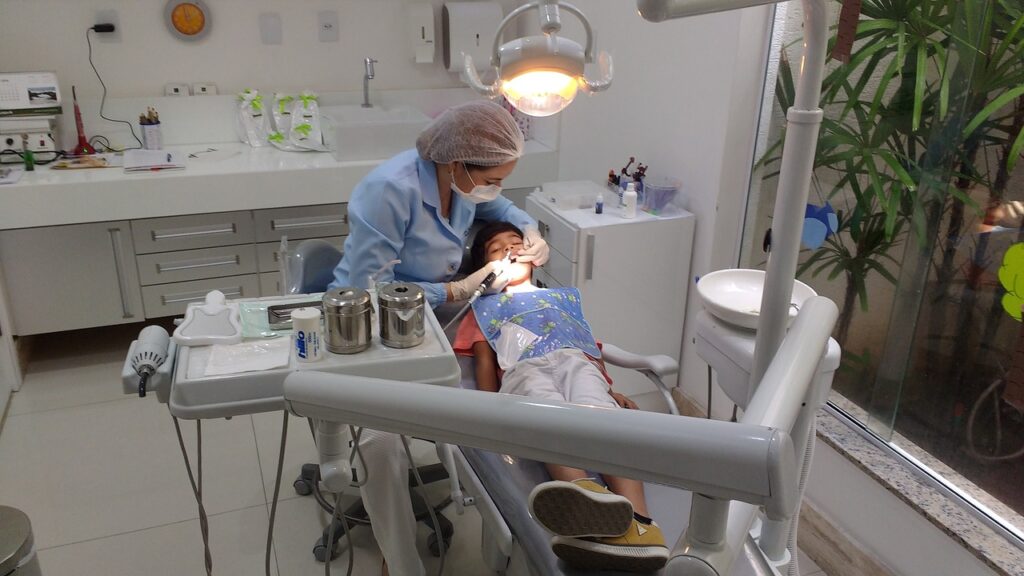Have you ever noticed that your tooth’s root surface feels dry or cracking? If so, you may be experiencing root decay. Root decay is a health problem that primarily affects older adults. It is when a lesion develops on the root surface of your tooth. These lesions typically develop close to the gingival (gum) margin. Older adults are more prone to developing root decay because they are living longer and keeping their teeth longer nowadays. There are many factors that contribute to root decay, including poor oral hygiene and diet, lack of toothbrush use, and smoking. If left untreated, root decay can lead to tooth loss in the long run. In this blog post, we will discuss the symptoms, causes, and complications of root decay in detail. We hope that by reading this article, you will be better equipped to prevent and/or treat root decay if it does occur.
What is root decay?
Root decay is a health condition in which the tooth root becomes exposed and decay-causing bacteria can enter the tooth. This health condition is particularly common in older adults and can lead to tooth loss. Root decay may also be called root cavities or root caries. tooth roots can only form cavities if they are exposed due to gum disease or periodontal disease. Symptoms of root decay may include toothaches, tooth decay, tooth loss, and gingivitis. If you are experiencing any of these symptoms, it is important to see a dentist to diagnose and treat root decay. Prevention of root decay is key and includes brushing teeth twice a day and flossing teeth every day.
What are the symptoms of root decay?
Root decay is a disease that affects the root of the tooth. The most common symptoms are continuous pain near the affected area that interferes with your daily life, a toothache that doesn’t go away, and difficulties eating, chewing, and swallowing. If left untreated, root decay can lead to tooth loss and other complications, such as dental abscesses. If you are experiencing any of the previously mentioned symptoms, it is important to get dental treatment as soon as possible.
What Are The Causes Of Root Decay?
Root decay is the gradual decay and falling of tooth enamel and gum tissue, due to the accumulation of oral bacteria, plaque, and food particles. The most common symptoms of root decay are toothache, gum disease, tooth decay, and receding gums. Left untreated, root decay can lead to tooth loss, tooth fracture, and even tooth extraction. So what are the causes of root decay? Poor oral care, such as not brushing teeth twice a day, not flossing, and not using mouthwash, is at the root of most cases. Additionally, a bad diet high in sugar and processed foods is also a major contributor. Not seeing your dentist on a regular basis can also lead to root decay due to the accumulation of plaque and bacteria.
Advanced Periodontal Disease
Advanced periodontal disease is a complex and serious dental condition that can be caused by a variety of factors. If left untreated, root decay will progress until it reaches the tooth’s crown (the top part of the tooth). This will result in tooth loss, oral health problems such as gum disease and difficulty chewing, and even infection. To prevent advanced periodontal disease from developing, it is important to maintain good oral hygiene habits including brushing teeth twice daily with fluoride toothpaste and rinsing thoroughly afterward. In addition to this basic routine, you should also visit your dentist on a regular basis for check-ups and plaque removal treatments if needed.
Poorly Fitted Removable Partial Dentures
If you’re wearing removable partial dentures that are not fitted well, there’s a good chance that they will cause some problems. In particular, poorly fitted dentures can lead to root decay – which in turn can cause tooth loss and bad dental hygiene habits. If you notice any of these symptoms, it is best to get them fixed as soon as possible.
Medications & Xerostomia
There are a lot of medications that can cause root decay and xerostomia. When these complications occur, they can lead to other health problems and may require treatment right away. If you are noticing any of the following symptoms, it is important to see a dentist as soon as possible: yellowing of teeth, bad breath, brittle nails etcetera. In addition to seeking dental care for your oral health issues, it is also advisable to keep track of your medication regimen in order to prevent root decay or xerostomia from developing in the first place.
What Are The Complications Of Root Decay?
Root decay is a problem that affects the health of teeth and gums. It is caused by the decay of the tooth enamel and can lead to cavities, tooth abscesses, and tooth loss. The complications of root decay can be serious and should be treated as soon as they are noticed. Cavities that can eventually become tooth abscesses can cause a great deal of pain when eating. In extreme cases, tooth loss can occur. So, if you think you might have root decay, make an appointment with your dentist as soon as possible.

